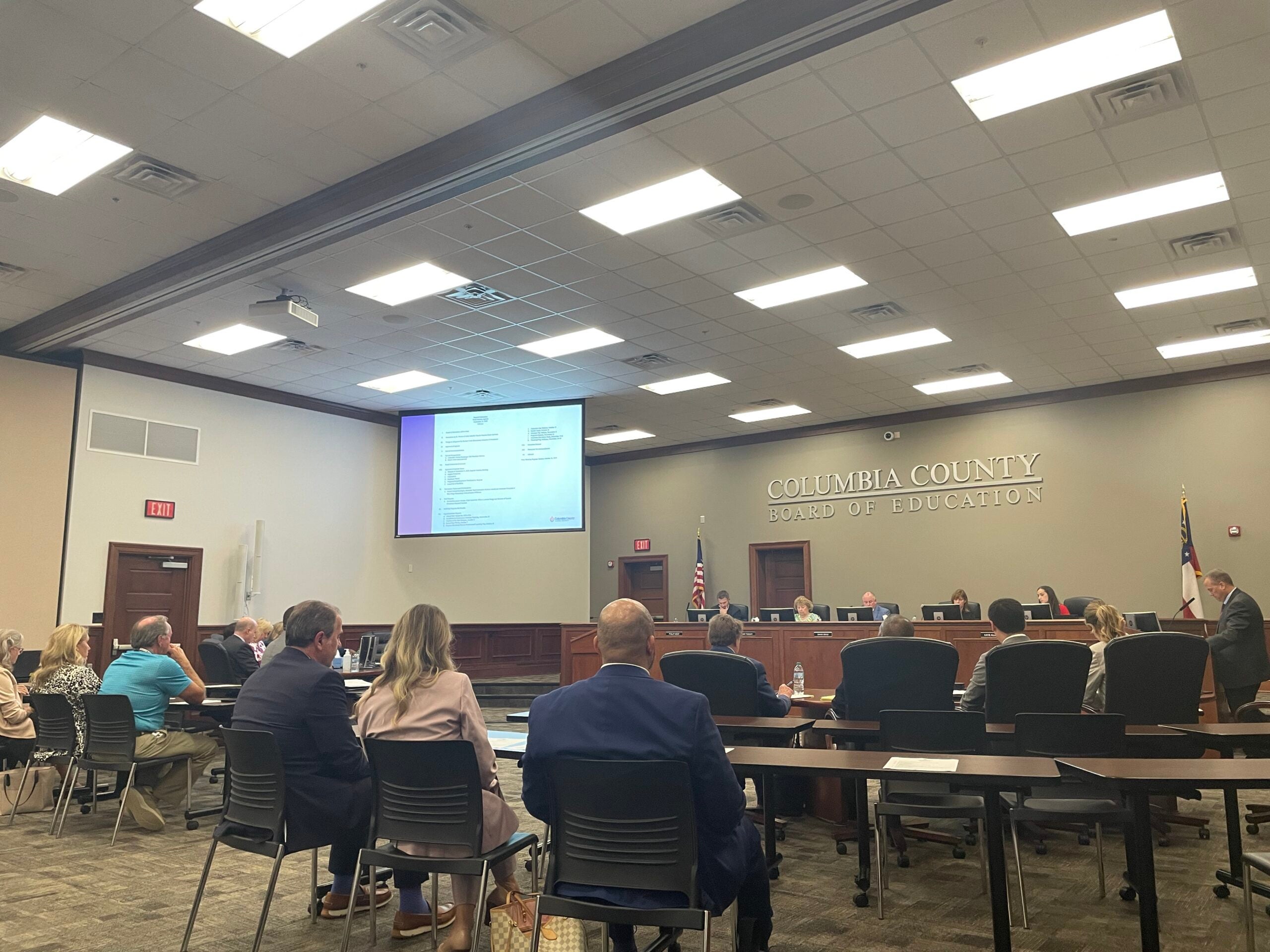A presentation on the Columbia County School District’s latest efforts to update its special education program yielded a tense discussion of procedures for conveying complaints to district administration.
During the Columbia County Board of Education’s (CCBOE) work session Tuesday night, Sharard Pritchett, the district’s director of Special Education, outlined the recent restructuring of the school system’s special ed program.
When the school system finds a student eligible for special ed, a team comprised of school staff, parents and sometimes related service providers develop an Individualized Education Plan (IEP) for the student, Pritchett explained.
“This essentially levels the playing field for our students who have exhibited deficits based on their exceptionality,” said Pritchett. “Once the IEP is developed, it is reviewed annually at a minimum, but can be amended by the IEP team throughout the year based on data and student fees. A reevaluation is held every three years or sooner, if the team feels it is appropriate.”
The implementation of IEPs may entail using self-contained classrooms throughout the district, designed to provide specialized instruction according to a child’s exceptionality, such as for autism spectrum disorder, emotional behavior disorder or intellectual disabilities.
Some 258 special ed teachers serve more than 3,600 students in special education, about 13% of the district’s population, Pritchett said.
District 4 Representative Katie Allen saw a “disconnect” between school system administration’s description of its refurbished special ed program and concerns she says came from the public.
Allen claimed that a local parent, who had networked with other parents with similar complaints “who felt like they couldn’t speak up” to the school district because they “feared retaliation,” compiled feedback about special ed program and sent it to Allen.
Among these concerns were decisions being made without the students’ best interest, moving classes, constant unnecessary adjustments.
“I think this is a first step, and I’m very proud this district has brought it to the meeting to allow the board to address it,” said Allen to her fellow board members. “And I think the next step would be that we would host or the district would host a question and answer forum directly with the public, where parents can bring back their targeted feedback for the special ed program and their questions.”
School board Chairman David Dekle pushed back, asking how long Allen has had the information — to which responded, and maintained throughout the exchange, that she had shared the information with the board “a number of times” — and, moreover, had she connected the parent to the appropriate district personnel.
Allen also said she had sent them info to Superintendent Steven Flynt, who insisted that he or any other personnel would address any issues or complaints as they come.
“But we can’t air individuals,” Flynt went on to say. “It might identify a student here… we have a limited number, especially in our self-contained programs, we can’t do that in public.”
District 3 Representative Judy Teasley agreed, saying, “I think this approach is counterproductive. I think going directly to the schools to the personnel is the best way to approach this. So I think if somebody writes us, it’s imperative that we send them in that direction.”
Dekle would ultimately shut down the back-and-forth, saying that a board member must bring concerns from parents to “the right people in a timely manner.”
Pritchard mentioned that parents are provided parental rights to act as “procedural safeguards” should parents disagree with IEP decisions, which spurs investigation from the state.
Flynt also noted that there are formal processes for parents to present issues to the school system, including protocols to issue complaints at the state level, and that using a different process, procedure or policy would be in violation of both state and federal law.
Also during the Tuesday work session, Blue Ridge Elementary School received praise as part the district’s Inspire campaign to regularly recognize students, teachers and schools for their achievements.
Associate Superintendent Kristen Carroll and Jessica Williams, assistant principal at Blue Ridge Elementary School, highlighted Blue Ridge’s achievements, such as achieving a College and Career Ready Performance Index (CCRPI) score of 92% last year, English Language Arts proficiency growing four points higher than the previous year and 84% of third through fifth graders reading at or above grade level.
Skyler Q. Andrews is a staff reporter covering general reporting for The Augusta Press. Reach him at skyler@theaugustapress.com











